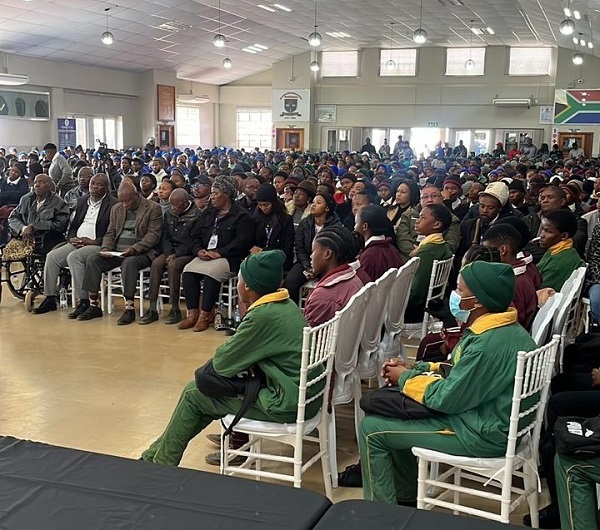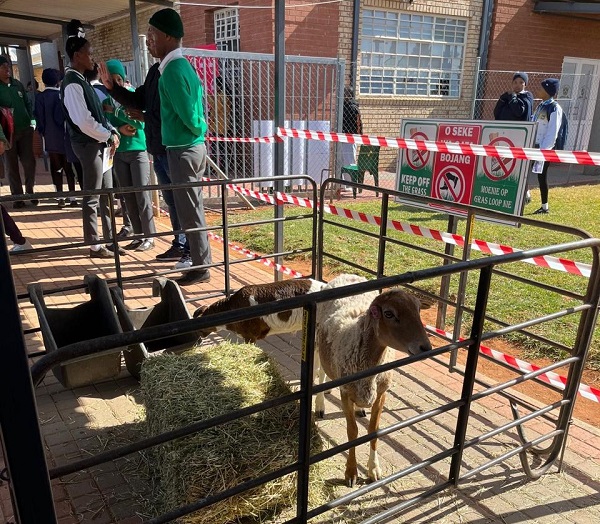“We are united despite our challenges.” This, the third last line of the anthem of the MM Sebitloane Special School, rang more true than ever on Tuesday, 30 July when the Vice-Chancellor Science Day of the North-West University (NWU) was held in the heart of the Taung district. Little did PJ Mahloko and MM Madikwe know when they composed the anthem for the school – which was founded in 1984 – that more than a thousand eager secondary school learners from the greater district would one day descend on the just more than 18 000-strong community of Taung.
What these learners saw was a glimpse of what their futures might hold. The Vice-Chancellor Science Day is a collaborative effort between the office of the vice-chancellor and the Faculty of Natural and Agricultural Sciences at the NWU, and it serves a multitude of purposes. One objective is to raise awareness about science, technology, engineering and mathematics (STEM). Others are to inspire our youth to consider careers in STEM fields, to illustrate the role of science in tackling problems and challenges encountered in creating and sustaining a prosperous society, and to demystify misconceptions surrounding some of the innovations that are important for the advancement of society.
This was the second time the event took place, following the inaugural Vice-Chancellor Science Day in 2023, which was hosted at Mabeskraal in the Bojanala District Municipality. More than 1 400 learners were reached there. This annual event rotates to different parts of North West and identifies areas that are not in the immediate vicinity of the NWU.
Prof Bismark Tyobeka, principal and vice-chancellor of the NWU, said in his opening speech at the event that: “For the learners of the greater Taung district, enrolling in STEM fields is not just an opportunity – it is a vital step towards shaping a brighter future for yourselves and your communities. STEM education opens doors to careers that are in high demand and offers the potential for innovation and problem-solving that can transform our world. In a region such as Taung that is often characterised by limited resources, a strong foundation in STEM can empower young people to overcome obstacles and achieve greatness by finding solutions that are relevant to the actual needs of the area. They are equipped with critical thinking skills, creativity and resilience, which are traits essential for thriving in today's rapidly evolving job market. If learners continue to embrace STEM education, they can become pioneers in fields such as renewable energy, healthcare, technology, agriculture and more, contributing to the development and sustainability of the greater Taung district and beyond. Moreover, STEM careers often offer better job stability and higher remuneration, providing a pathway out of poverty and a means to support families and communities.”
Prof Tyobeka closed with a message of hope for all those in attendance: “Let us all encourage our learners to seize these opportunities, knowing that with the right education and determination, they can change not only their own lives but also the future of our region.”


